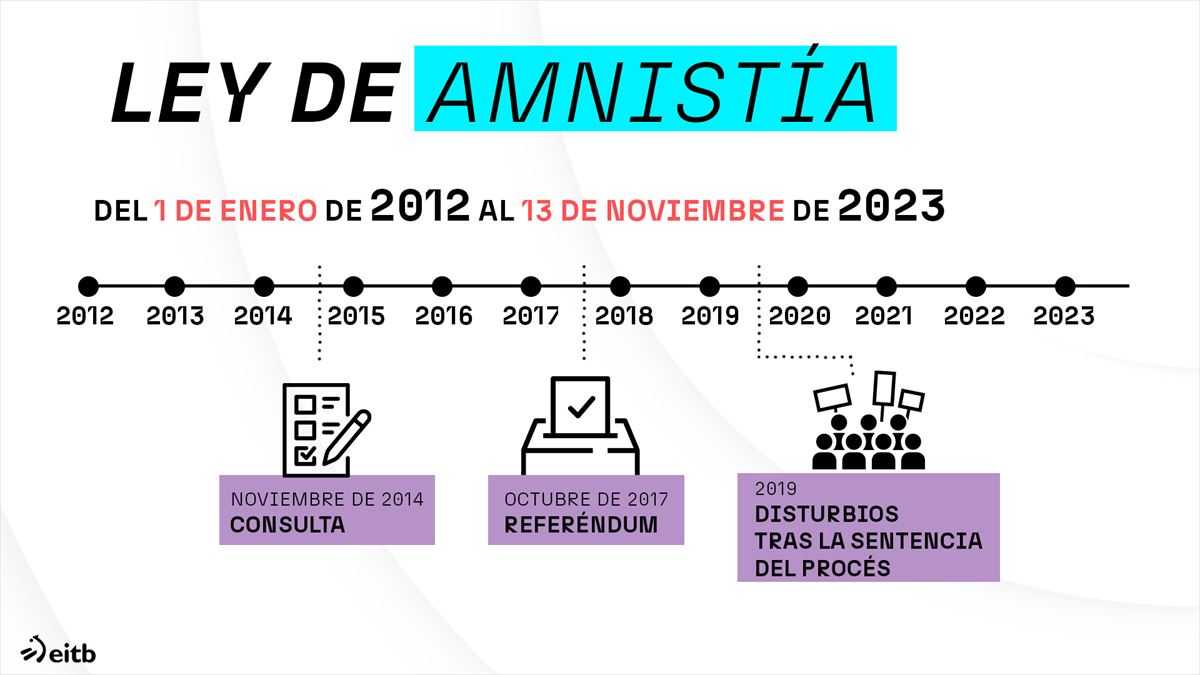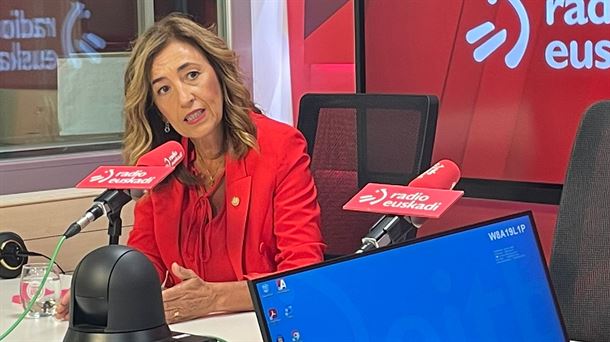The rule places the independence conflict from January 1, 2012 to November 13, 2023. Terrorist acts that have not caused serious human rights violations will be forgiven. The amnesty law is expected to benefit approximately 382 people.
He Plenary meeting of the Congress vote this Tuesday on the proposed amnesty law to be sent to the Senate (the PP has an absolute majority), a vote that will require the support of the absolute majority of the House of Commons because it is an organic law.
While we wait to see how the text will move through Parliament, these are some keys to contextualizing the standard:
Complicated negotiations
After intensive negotiations, PSOE and Junts signed an agreement on the amnesty law in the early hours of November 9, which allowed the decisive and crucial support of the party of former President of the Generalitat Carles Puigdemont for the inauguration of Pedro Sánchez.
Last week, socialists and Catalans also agreed in extremis on two amendments, expanding the umbrella of the norm, especially when it comes to terrorist crimes. This, among other things, guaranteed that cases such as the Democratic Tsunami would benefit from the measure of mercy.
What about terrorist crimes?
The original text, presented only by the PSOE last November, excluded terrorist crimes from the amnesty “until” there was a final ruling.
Now that reference has been removed from the text, which states that acts of terrorism that “clearly and with direct intent caused serious violations of human rights” will not be forgiven.
What actions will be amnesty for?
Embezzlement of public funds, usurpation of functions, as well as acts of disobedience, public disorder and deception will be invalid, as long as they have a direct relationship with the independence process.
To what dates does the amnesty bill apply and what facts does it include?
From January 1, 2012 to November 13, 2023. That is the time covered by this rule. That is, 11 years during which certain acts related to the trial and which are in judicial proceedings can be granted amnesty.
In this way, the acts that would be included in the amnesty would be those directly linked to three clear milestones: the consultations held in Catalonia on November 9, 2014, the referendum of October 1, 2017 and the 2019 riots after it knew the meaning of the process.

Who will benefit from it?
The amnesty law is expected to benefit approximately 382 people. Those convicted by the Supreme Court in the October 2019 ruling will have their criminal records erased, including ERC leader Oriol Junqueras and former president Artur Mas (convicted of 9-N charges), and those who served Spanish justice have fled. as Carles Puigdemont, Marta Rovira or Anna Gabriel, after the referendum of October 1, 2017.
Other names that will benefit from the law are the former president of parliament, Carme Forcadell, the former advisor Meritxell Serret or the former presidents of the ANC and Òmnium Cultural, Jordi Sànchez and Jordi Cuixart, respectively.
Amnesty will also be granted to around fifty National Police officers prosecuted for the 1-O charges in Barcelona.
Puigdemont’s return to Catalonia in May?
Puigdemont, leader of the Junts, has fled Spain since 2017. If he continues, the rule would guarantee his return and make him one of the main beneficiaries of the amnesty, as the text states that all precautionary measures must be lifted, although the rule is being appealed. Marta Rovira would find herself in a similar situation.
Regarding his possible return, sources close to Junts believe that “between May and June” the former Catalan president and ERC general secretary “could return to Catalonia.”
Urgent request
Justice must apply the amnesty on a preferential and urgent basis, and decisions must be taken within a maximum of two months.
On the other hand, the amnesty will not lead to the right to any compensation, economic rights or restitution of fines.
Next steps in Congress and Senate
The rule was once spread by the Justice Committee, but now it must be the plenary session of the House of Representatives that gives its approval after a debate in which the ERC and Junts proposals can be made public again. This includes the extension of the application period of the amnesty by two months, from 1 November 2011.
The text will then go to the Senate, where processing will begin, no longer as has been the case in the House of Representatives, but exactly the opposite in accordance with what was announced by the PP, which has a majority in the Senate. House.
Source: EITB
I am Ida Scott, a journalist and content author with a passion for uncovering the truth. I have been writing professionally for Today Times Live since 2020 and specialize in political news. My career began when I was just 17; I had already developed a knack for research and an eye for detail which made me stand out from my peers.



